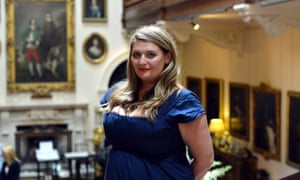
Bryony Gordon made only the most modest claims in her reflective Telegraph piece about that chat with Prince Harry. “I think this interview is special, not because it’s a scoop or an exclusive. I don’t think this interview is special because I happened to do it. I think it is special because, in Britain, we don’t talk about our feelings. We have bitten our lips, slapped on rictus grins, kept buggering on.
“It has always been a sign of strength and dignity to keep it all inside, and our royal family have always been the embodiment of that, God bless them. But Prince Harry just redefined strength and dignity for a new generation.”
And Bryony, in turn, redefines an outer edge of the role of journalism. Her book, Mad Girl, is one of the most haunting stories of depression and desperation in print, the saga of conventional girl-about-town columnist who plunged close to extinction. Harry talked to her because she was a kindred, troubled spirit. In short, she earned her moments of being quoted around the world – and praised for delving in the depths beyond bitten lips and rictus grins.
• There’s no loss in knowing whether George Osborne could have edited the Evening Standard until noon, before scooting down to the House or dashing up to Tatton, then filling his evenings with richly paid speechifying. He couldn’t. It was never on. The editing bit was pure shop-window dressing.
And the gain? Seeing whether Osborne, his experience of journalism vestigial going on derisory, can actually edit a one-edition free sheet effectively. Mrs May has done us all a favour there. She’s backed George against a wall – and challenged him to do a proper day job. Or not.